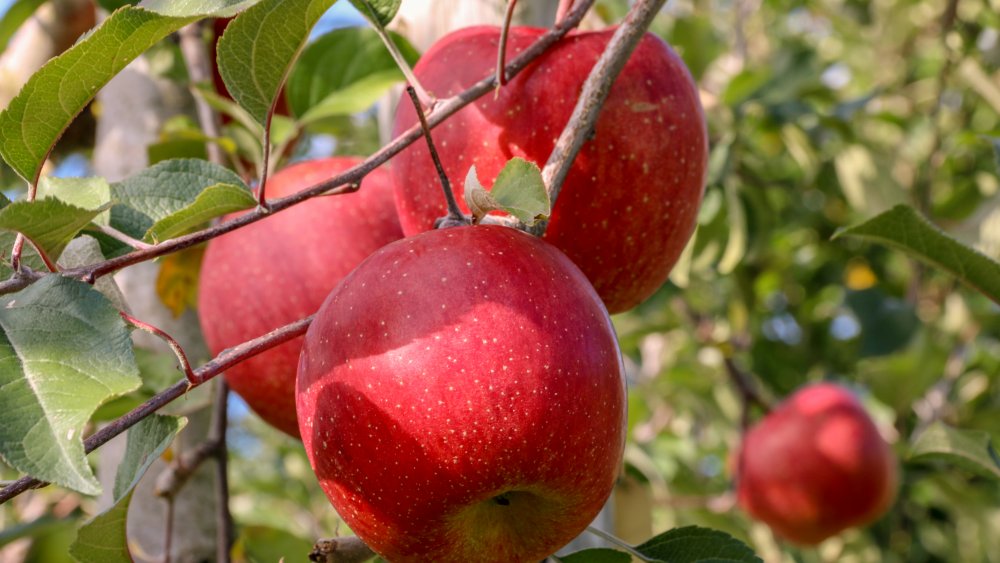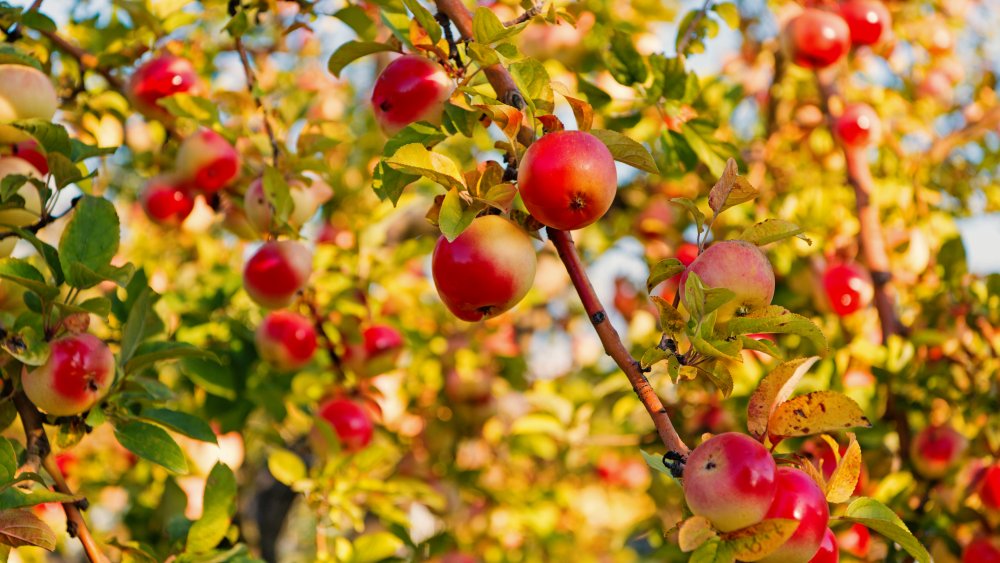Why Apples Have Started To Lose Their Flavor
If you've always loved apples you might have wondered if you're imagining things lately, because this season's crop sure doesn't seem to taste as good as it did before. Turns out you may be on to something, because researchers have discovered that apples — at least a few of the fruit's varieties — may not be as flavorful as they used to be.
A team of Japanese researchers took today's Fuji and Tsugaru apples and compared the textures and flavors of these apples against those which were grown and harvested 30 to 40 years ago (via Scientific Reports). Using records kept at the time, the researchers compared the quality of those fruits to today's apples. They found that today's apples are neither as firm, nor do they contain as much malic acid (which gives apples their flavor) as their ancestors. Today's fruits are also more susceptible to watercore, a disease which makes apples mushier when they mature (via Gizmodo).
To find the probable causes for these changes, researchers examined climate data gathered over the last 40 years and found that in the Japan's apple-growing regions of Nagano and Aomori, temperatures had risen 3.5 degrees Fahrenheit at about the same time the apples would have flowered. Call it coincidence, but other studies have similarly linked high temperatures with poorer taste and texture in apples, too.
Climate change has made it challenging to grow good apples
Climate change has made it challenging to grow apples outside of Japan, too. In Michigan, farmers say if it is too hot, an apple that is meant to turn red becomes pinkish-brown instead. And if the temperature drops and there is frost, apples end up with rusty brown spots, or russeting. Both defects might be cosmetic, but because we just assume that apples need to be storybook-red, the fruit becomes that much more difficult to sell (via NPR).
Unfortunately, this would not be the first time climate change has been linked to changes in the quality and viability of different types of fruit. "We've been having milder winters and hotter summers," fruit farmer Phil Schwallier told NPR. "More extremes, more variation up and down," which he says only means more defects in the apples. Because of this, farmers will have to get more clever and creative so they can try to outsmart Mother Nature, or we'll have to live with apples that, thanks to climate change, have become a pale shadow of themselves.

